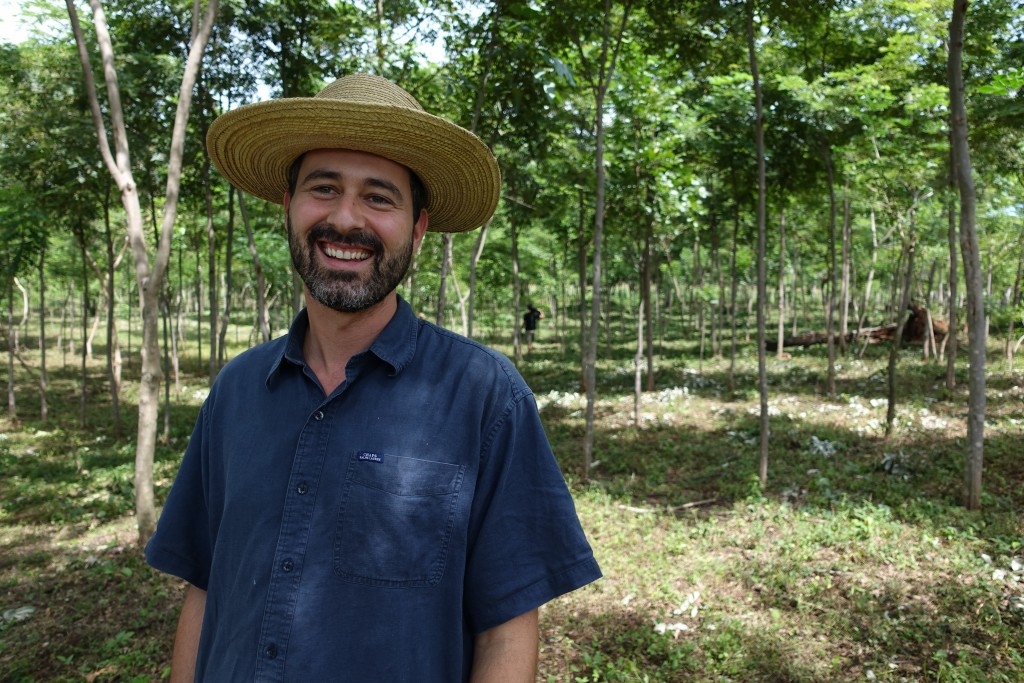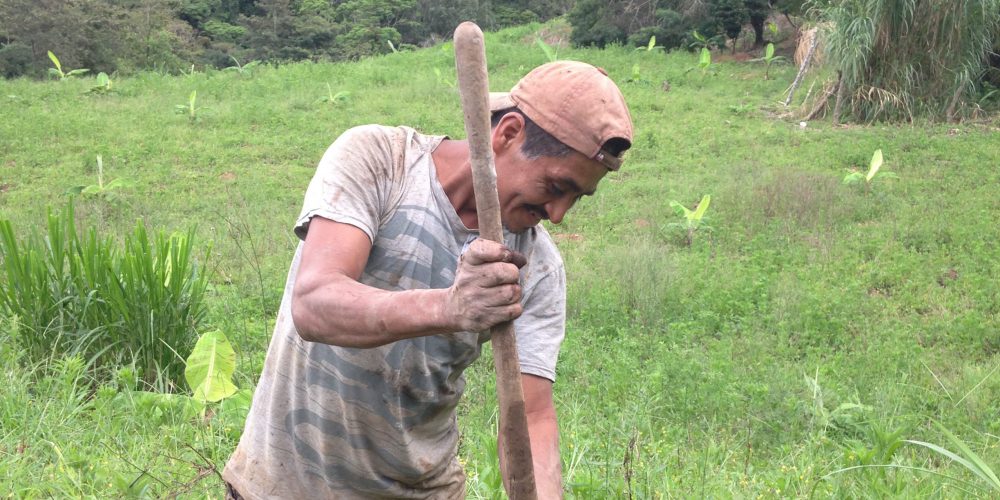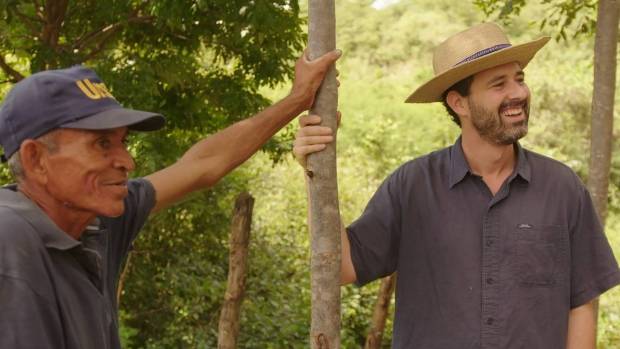Giving back is an important mantra that we hold proud at Prometour. We know that air travel is not the best for the environment, that's why we started offering all of our travellers the option to offset their carbon emissions every time they do choose to travel with us.
Teaming up with Taking Root for 3 years now, as an entire team we have become more eco-friendly and environmentally conscious in the office when it comes to recycling, opting for natural sunlight (when we can!) and opening our beautiful bay windows instead of blasting the AC. Check out how Giving Back with Prometour: Taking Root is easy for a traveler like you!
Meet Kahlil Baker,
For the past 9 years, Kahlil has been proactively working towards his mission of offsetting the carbon prints of individuals, to small businesses and large corporations while offering jobs to those in need.
So how does Taking Root do it?
We asked Kahlil if he could sit down with us to talk more about Taking Root, his goals for the organization's future and how travelers like you can do their part (especially when choosing to travel with Prometour).
1) Who and what is Taking Root? (Brief history, how it came about etc.)
Formed in 2007, Taking Root is a pioneer in leveraging the forest carbon offset industry to promote economic development amongst smallholder farmers in Central America. As a not-for-profit organization, our mission is to use reforestation as a tool to mitigate climate change, improve livelihoods and restore ecosystems. This is achieved by encouraging smallholder-farming families to reforest the under-utilized parts of their farms using native tree species in exchange for direct payments over time as the trees sequester carbon from the atmosphere.
2) Why is Taking Root important? What has been achieved since?
Tropical deforestation is a major contributor to climate change. This is because trees are made up of 50% carbon. When trees are cut down, that carbon is released into the atmosphere as carbon dioxide (CO2), the primary contributor to climate change. Through this process, deforestation releases more CO2 than the global contribution of all the world’s cars, planes and trains combined.
The root cause of deforestation is people clearing trees from land to grow food or earn an income, typically in the poorest parts of the world. Local poverty drives local deforestation and local deforestation drives global climate change. Therefore, Taking Root is designed to address a cluster of complicated global issues, including poverty, deforestation, and climate change.
Taking Root works in partnership with farmers in some of the poorest parts of the world to reforest their own land in a way that provides them with an income. We provide farmers with:
-
Training on how to grow productive and healthy trees;
-
Access to markets for the goods and services produced by their trees (e.g., carbon sequestration services); and
-
Cash payments over time-based on the growth of their trees.
The impact of Taking Root’s work with farmers extends around the globe. While each smallholder farmer may own just a tiny piece of the earth’s surface, collectively they control most of the world’s farms – 86 percent of all farms.3 Almost half the world’s 3 billion smallholders already grow trees on their farms. This is already the largest population of active forest managers in the world4. They already reforest more land around the planet than the entire corporate sector – and do so more sustainably by using a variety of mixed native tree species.5
To date, we have piloted our program with 296 families in 68 communities in Northern Nicaragua. Farmers have planted 1.6 million trees of 83 native species covering 1,170.3 hectares, which has created a secure habitat for numerous wildlife species. The project is on target to sequester 346,000 tCO2 in our pilot region. We work with nitrogen-fixing trees that contribute 9,990 kg of naturally produced nitrogen annually, adding biomass to plantations for soil restoration. Since 2010, $715,357 has been paid to communities (where families live on less than $2/day) in the form of payment for ecosystem services, advance payments, and salaries, and we have earmarked $839,890 for future payments provided that smallholders meet carbon sequestration targets. We have created more than 2,500 seasonal and 25 full-time jobs, making us the largest employer in the regions where we work. We reserve 50% of jobs for women, including at managerial levels, and women's groups are targeted in the program’s community consultations and workshops so that the project design can be adapted to their specific needs.
3) Why should more people be offsetting their carbon emission? How can travelers do their part?
Our everyday activities release greenhouse gases that lead to climate change. It is essential that we all make conscientious decisions in our day-to-day activities to effectively address our carbon footprint.
Transportation and travel is a significant contributor to climate change. Yet not all transportation methods contribute equally. Flying can emit close to double the CO2 emissions compared to driving a car over the same distance. And of course, some methods of travel produce negligible CO2 emissions and it is imperative that we look for opportunities to choose those options first.
After you have made all the changes you can to reduce your carbon footprint, you will be left with a residual amount of carbon – and that’s where offsetting comes in. Offsetting your carbon footprint does not mean you stop finding new ways to reduce your impact, it simply means your carbon offsets can go that much further as we continue to make changes towards a low carbon economy.
4) How has Prométour done their part? (brief history/timeline of Prometour and Taking Root’s relationship)
Prométour has taken the next step in environmental responsibility by becoming a CO2 Responsible Partner with Taking Root since 2013. In addition to offsetting its own emissions, Prométour invites its clients to offset the carbon emissions associated with their trips. Those offsets are invested in Taking Root’s reforestation project that benefits people and the planet.
5) What are your goals and plans for the future of Taking Root? What do you hope for?
For 9 years, we have been working from the bottom up developing a holistic reforestation model that addresses the complicated drivers of deforestation. As a result, the project has grown by leaps and bounds from our first 20 forest plantations to almost 700 in 2016. While we are very proud of this growth, it is not nearly enough given the scale and complexity of the problem.
In coming years, we hope to continue growing our current projects in Nicaragua and throughout Central America, and also share our model as widely as possible. We hope to combine our work with other efforts from around the world so that we can have an impact on a truly global scale.








